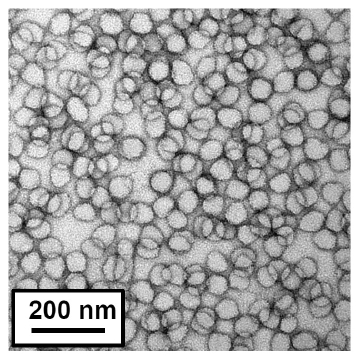Home > Press > Malvern Zetasizer Nano helps Sheffield University researchers optimise nanolatex production
 |
Abstract:
Prof Steven Armes and his research team in the Department of Chemistry, at The University of Sheffield in the UK, are using a Zetasizer Nano from Malvern Instruments to monitor the rapid and efficient production of nanolatexes. This single instrument can determine both the particle size distribution and also monitor the zeta potential, making it an ideal characterisation tool for following the in situ synthesis of many types of polymer colloids, such as latexes, microgels or colloidal nanocomposite particles.
Malvern Zetasizer Nano helps Sheffield University researchers optimise nanolatex production
Malvern, UK | Posted on July 6th, 2011"The Zetasizer Nano is so easy to use," explained Professor Armes. "All my students can familiarise themselves with it very quickly. As a result, we are purchasing a second instrument to ensure we have enough capacity for our expanding research programme in this area."
"We are making block copolymer nanolatexes directly in water using a very versatile and efficient aqueous dispersion polymerisation formulation," said Prof Armes. "By targeting an appropriate block composition, we can prepare spherical nanoparticles of pre-determined diameter within the technologically important 25 to 100 nm size range at relatively high particle concentrations. Recently, we have extended our formulation to prepare worm-like polymer particles and hollow particles known as vesicles."
Additionally, the elecrophoretic behaviour of the Sheffield team's nanolatexes strongly depends on the chemical nature of the polymeric stabiliser that is selected. If cationic or anionic polyelectrolytes are used, this has a profound effect on the zeta potential of the nanolatex, as confirmed using the Zetasizer Nano instrument.
Prof. Armes' research group at Sheffield University also study colloidal nanocomposites, conducting polymer particles, stimulus-responsive microgels, Pickering emulsions and block copolymer self-assembly in aqueous solution. Further information and a list of recent publications can be found at: bit.ly/ARMES
Zetasizer Nano particle characterization systems from Malvern Instruments measure particle size, zeta potential and molecular weight. Applications range from characterizing high concentration colloids and nanoparticles, through to measurement of dilute proteins and macromolecules in their native state, requiring as little as 12 microlitres of sample. www.malvern.com/zetasizer
Malvern, Malvern Instruments and Zetasizer are registered trademarks of Malvern Instruments Ltd.
####
About Malvern Instruments
Malvern Instruments is a market leader in measuring performance controlling material properties. These include particle size, particle shape, zeta potential, molecular weight, size and conformation, rheological properties and chemical identification. Malvern delivers the systems, support and expertise that ensure the analytical integrity and productivity needed to drive research, development and manufacturing.
Malvern’s measurement solutions for scientists, technologists and engineers advance continually through customer collaboration. Complementary materials characterization systems deliver inter-related measurements that reflect the complexities of particulates and disperse systems, nanomaterials and macromolecules. Combining intelligently implemented technologies with in-depth industry applications knowledge and support, Malvern provides customers with the competitive advantage they demand.
Headquartered in Malvern, UK, Malvern Instruments has subsidiary organizations in all major European markets, North America, China, Japan and Korea, a joint venture in India, a global distributor network and applications laboratories around the world.
For more information, please click here
Contacts:
Luke Newman, Kapler Communications
Our Ref: MAL/JOB/2235
Follow Kapler Communications on Twitter: Kapler_PR
Tel: +44 (0) 1480 479280
Copyright © Malvern Instruments
If you have a comment, please Contact us.Issuers of news releases, not 7th Wave, Inc. or Nanotechnology Now, are solely responsible for the accuracy of the content.
| Related News Press |
News and information
![]() Researchers develop molecular qubits that communicate at telecom frequencies October 3rd, 2025
Researchers develop molecular qubits that communicate at telecom frequencies October 3rd, 2025
![]() Next-generation quantum communication October 3rd, 2025
Next-generation quantum communication October 3rd, 2025
![]() "Nanoreactor" cage uses visible light for catalytic and ultra-selective cross-cycloadditions October 3rd, 2025
"Nanoreactor" cage uses visible light for catalytic and ultra-selective cross-cycloadditions October 3rd, 2025
Announcements
![]() Rice membrane extracts lithium from brines with greater speed, less waste October 3rd, 2025
Rice membrane extracts lithium from brines with greater speed, less waste October 3rd, 2025
![]() Researchers develop molecular qubits that communicate at telecom frequencies October 3rd, 2025
Researchers develop molecular qubits that communicate at telecom frequencies October 3rd, 2025
![]() Next-generation quantum communication October 3rd, 2025
Next-generation quantum communication October 3rd, 2025
![]() "Nanoreactor" cage uses visible light for catalytic and ultra-selective cross-cycloadditions October 3rd, 2025
"Nanoreactor" cage uses visible light for catalytic and ultra-selective cross-cycloadditions October 3rd, 2025
Tools
![]() Japan launches fully domestically produced quantum computer: Expo visitors to experience quantum computing firsthand August 8th, 2025
Japan launches fully domestically produced quantum computer: Expo visitors to experience quantum computing firsthand August 8th, 2025
![]() Rice researchers harness gravity to create low-cost device for rapid cell analysis February 28th, 2025
Rice researchers harness gravity to create low-cost device for rapid cell analysis February 28th, 2025
|
|
||
|
|
||
| The latest news from around the world, FREE | ||
|
|
||
|
|
||
| Premium Products | ||
|
|
||
|
Only the news you want to read!
Learn More |
||
|
|
||
|
Full-service, expert consulting
Learn More |
||
|
|
||








